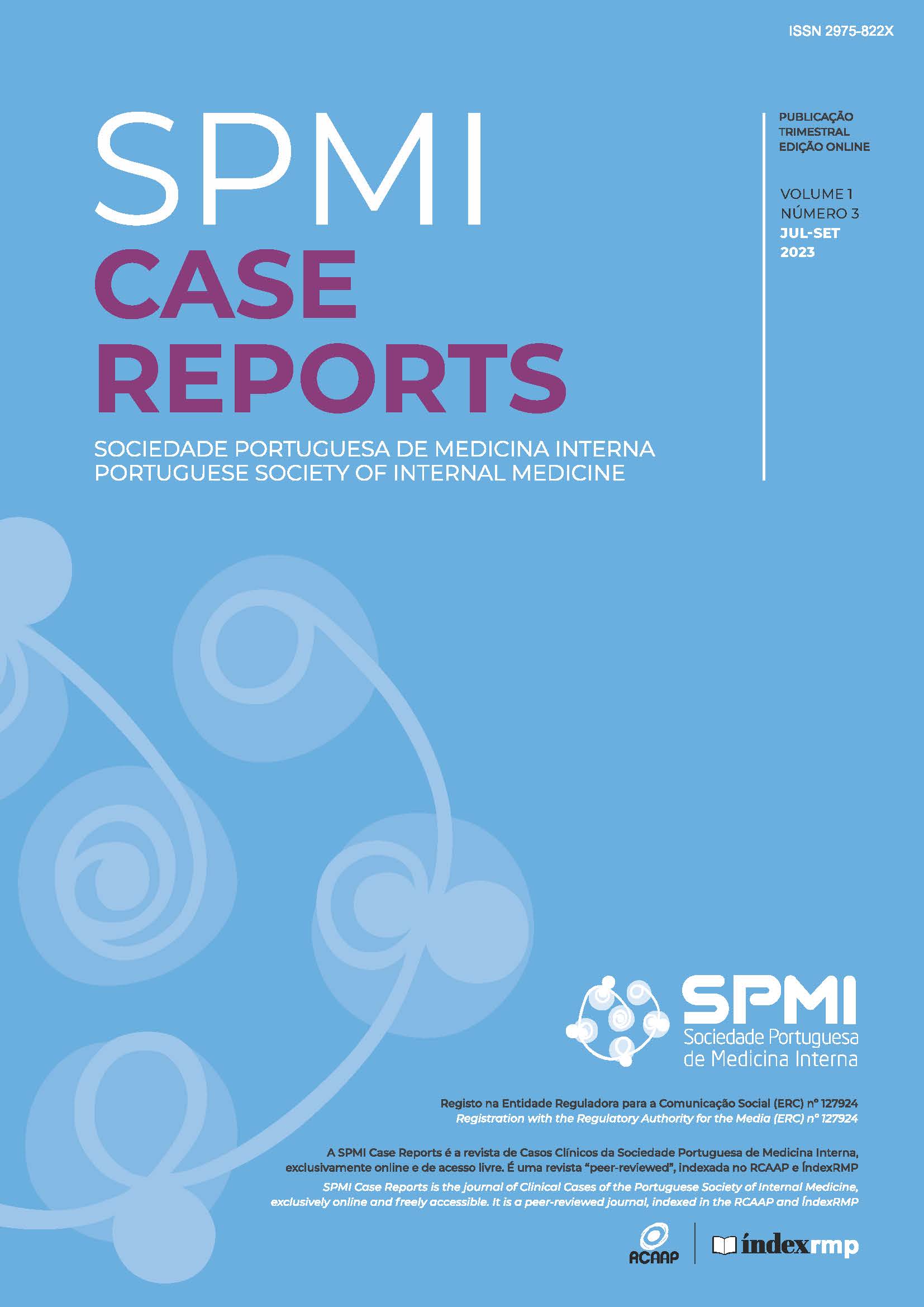Rapidly Progressive Cerebellar Syndrome: A Case Report
DOI:
https://doi.org/10.60591/crspmi.72Keywords:
Cerebellar Neoplasms, Ovarian Neoplasms, Paraneoplastic Cerebellar Degeneration, Paraneoplastic SyndromesAbstract
Rapidly progressive cerebellar syndrome is the second most frequent paraneoplastic neurological syndrome and its
diagnosis requires the exclusion of other entities. The syndrome can precede the malignancy diagnosis and present with ramatic effects, regardless of malignancy stage.
We present a case of a 69-year-old female who was hospitalized due to vertigo and gait ataxia that started a few weeks before. Physical examination revealed dysphagia, dysarthria, pathological nystagmus and gait and limb ataxia. The blood analysis revealed elevated inflammatory parameters and tumor markers and positivity to anti-Yo antibodies. The patient was diagnosed with ovarian cancer with peritoneal metastasis after other conditions were excluded.
Even though it is a rare condition, it is important that all
physicians recognize rapidly progressive cerebellar syndrome
given the possibility of an underlying neoplastic disease
Downloads
References
Schulz P, Prüss H. "Hirnsymptome bei Carcinomatose" - Hermann Oppenheim and an early description of a paraneoplastic neurological syndrome. J Hist Neurosci. 2015;24:371-7. doi: 10.1080/0964704X.2015.1021120
Graus F, Vogrig A, Muñiz-Castrillo S, Antoine JCG, Desestret V, Dubey, D et al. Updated Diagnostic Criteria for Paraneoplastic Neurologic Syndromes. Neurol Neuroimmunol Neuroinflamm. 2021;8:e1014. doi: 10.1212/NXI.0000000000001014
Grativvol RS, Cavalcante WCP, Castro LHM, Nitrini R, Simabukuro MM. Updates in the diagnosis and treatment of paraneoplastic neurologic syndromes. Curr Oncol Rep. 2018;20:92. doi: 10.1007/s11912-018-0721-y
Mitoma H, Manto M, Hadjivassiliou M. Immune-mediated cerebellar ataxias: clinical diagnosis and treatment based on immunological and physiological mechanisms. J Mov Disord. 2021;14:10-28. doi: 10.14802/jmd.20040
Vogrig A, Gigli GL, Segatti S, Corazza E, Marini A, Bernardini A et al. Epidemiology of paraneoplastic neurological syndromes: a population-based study. J Neurol. 2020;267:26-35. doi: 10.1007/s00415-019-09544-1
Honnorat J, Antoine JC. Paraneoplastic neurological syndromes. Orphanet J Rare Dis. 2007;2:22. doi: 10.1186/1750-1172-2-22
Greenlee JE, Brashear HR. Antibodies to cerebellar Purkinje cells in patients with paraneoplastic cereb Neurol. 1983;14:609-13. doi: 10.1002/ana.410140603
Jarius S, Wildeellar degeneration and ovarian carcinoma. Ann mann B. 'Medusa head ataxia': the expanding spectrum of
Purkinje cell antibodies in autoimmune cerebellar ataxia. Part 3: Anti-Yo/CDR2, anti-Nb/AP3B2, PCA-2, anti-Tr/DNER, other antibodies, diagnostic pitfalls, summary and outlook. J Neuroinflammation. 2015;12:168. doi: 10.1186/s12974-015-0358-9
Rojas I, Graus F, Keime-Guibert F, Reñé R, Delattre JY, Ramón JM, et al. Long-term clinical outcome of paraneoplastic cerebellar degeneration and anti-Yo antibodies. Neurology. 2000;55:713-5. doi: 10.1212/wnl.55.5.713
Shams'ili S, Grefkens J, de Leeuw B, van den Bent M, Hooijkaas H, van der Holt B, et al. Paraneoplastic cerebellar degeneration associated with antineuronal antibodies: analysis of 50 patients. Brain. 2003;126:1409-18. doi: 10.1093/brain/awg133
Loehrer PA, Zieger L, Simon OJ. Update on paraneoplastic cerebellar degeneration. Brain Sci. 2021;11:1414. doi: 10.3390/brainsci11111414.








